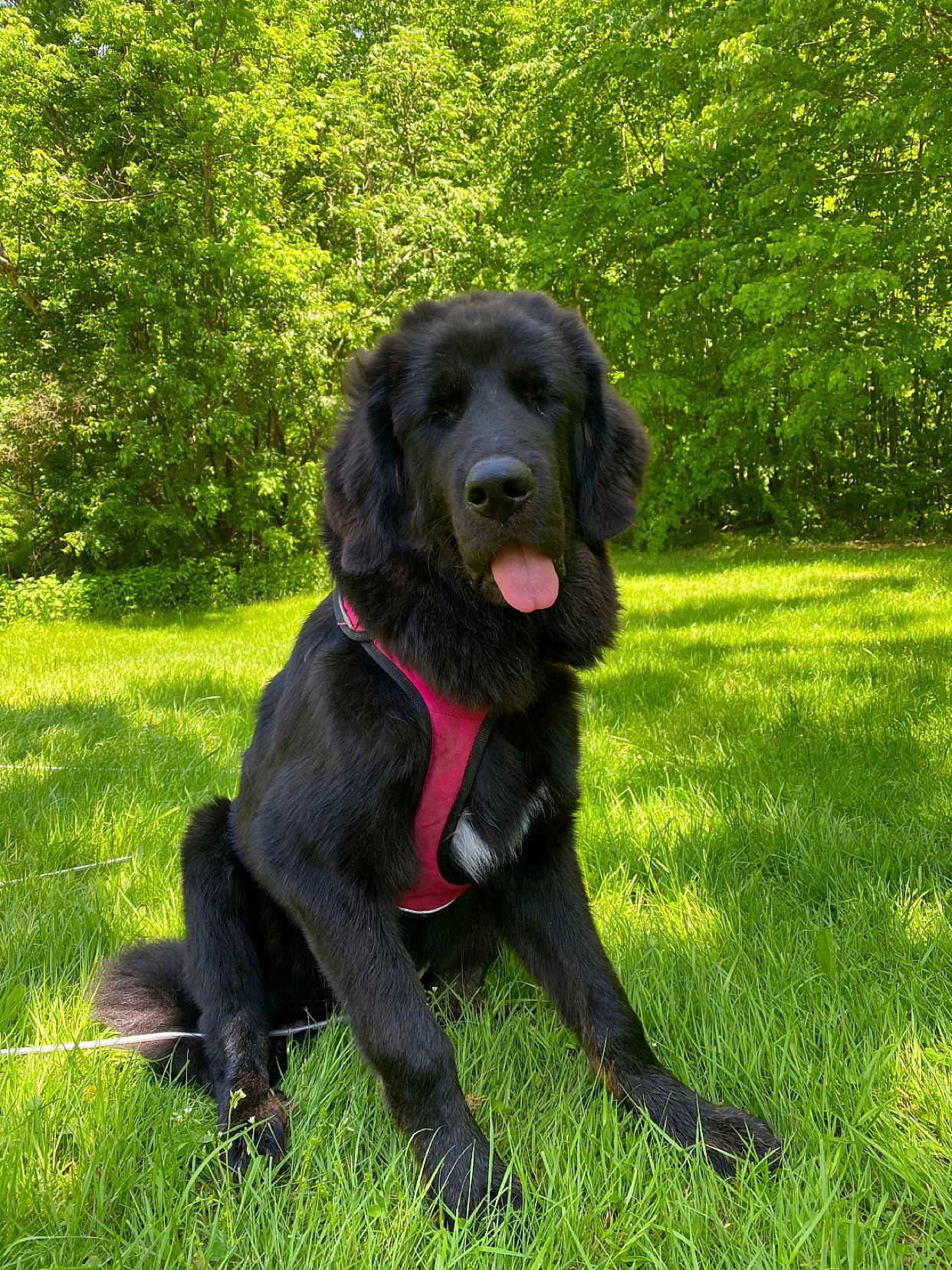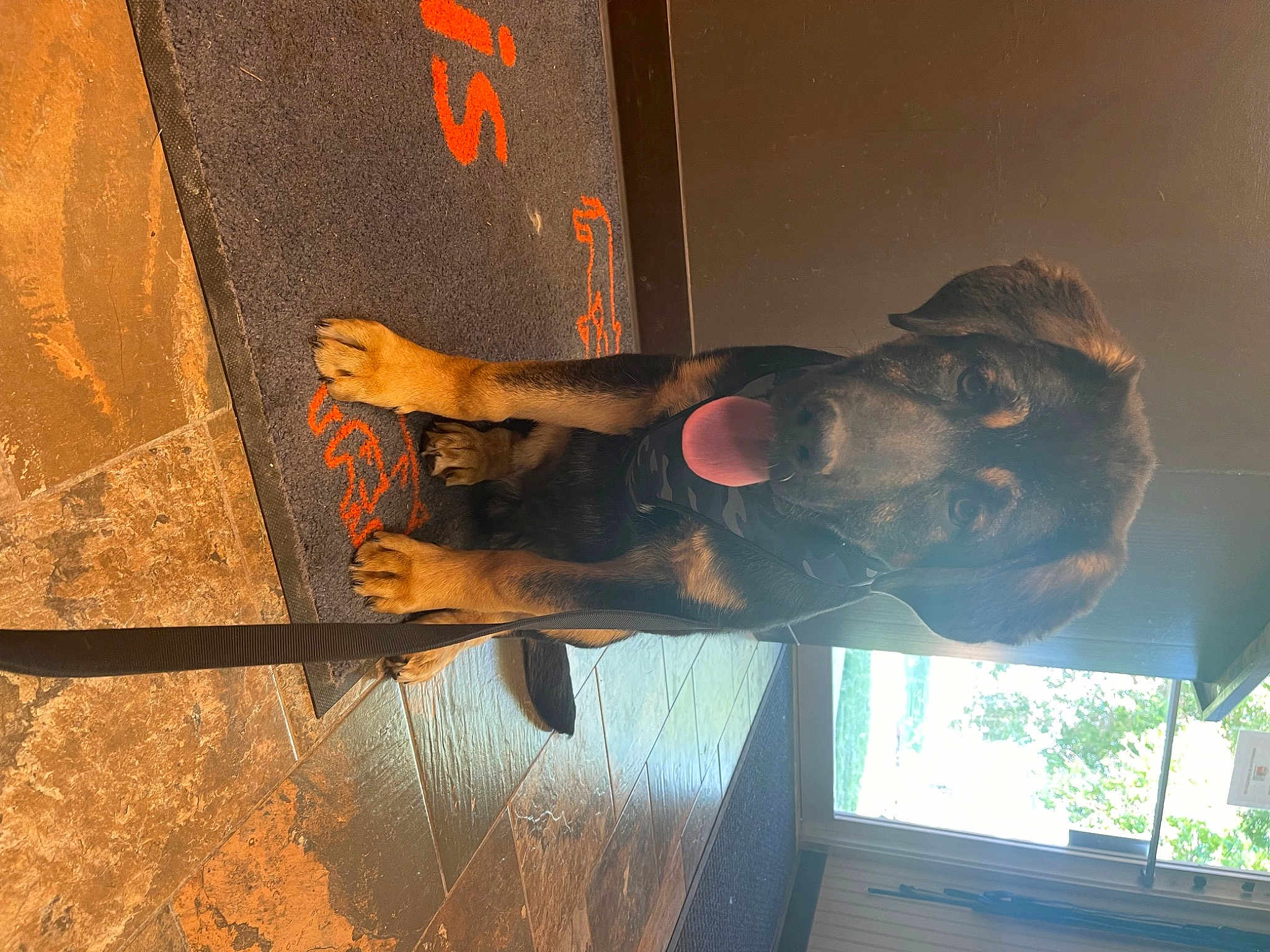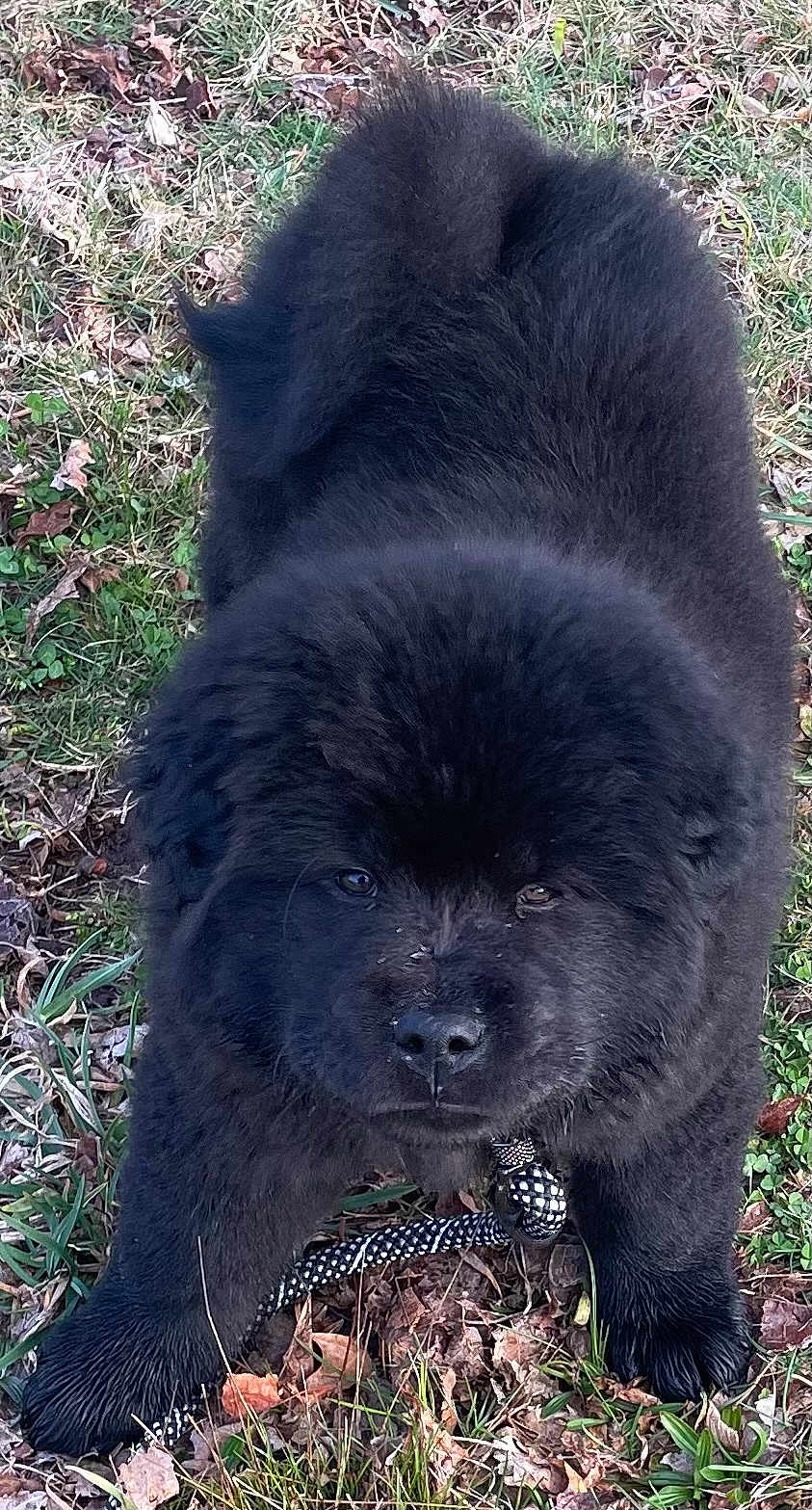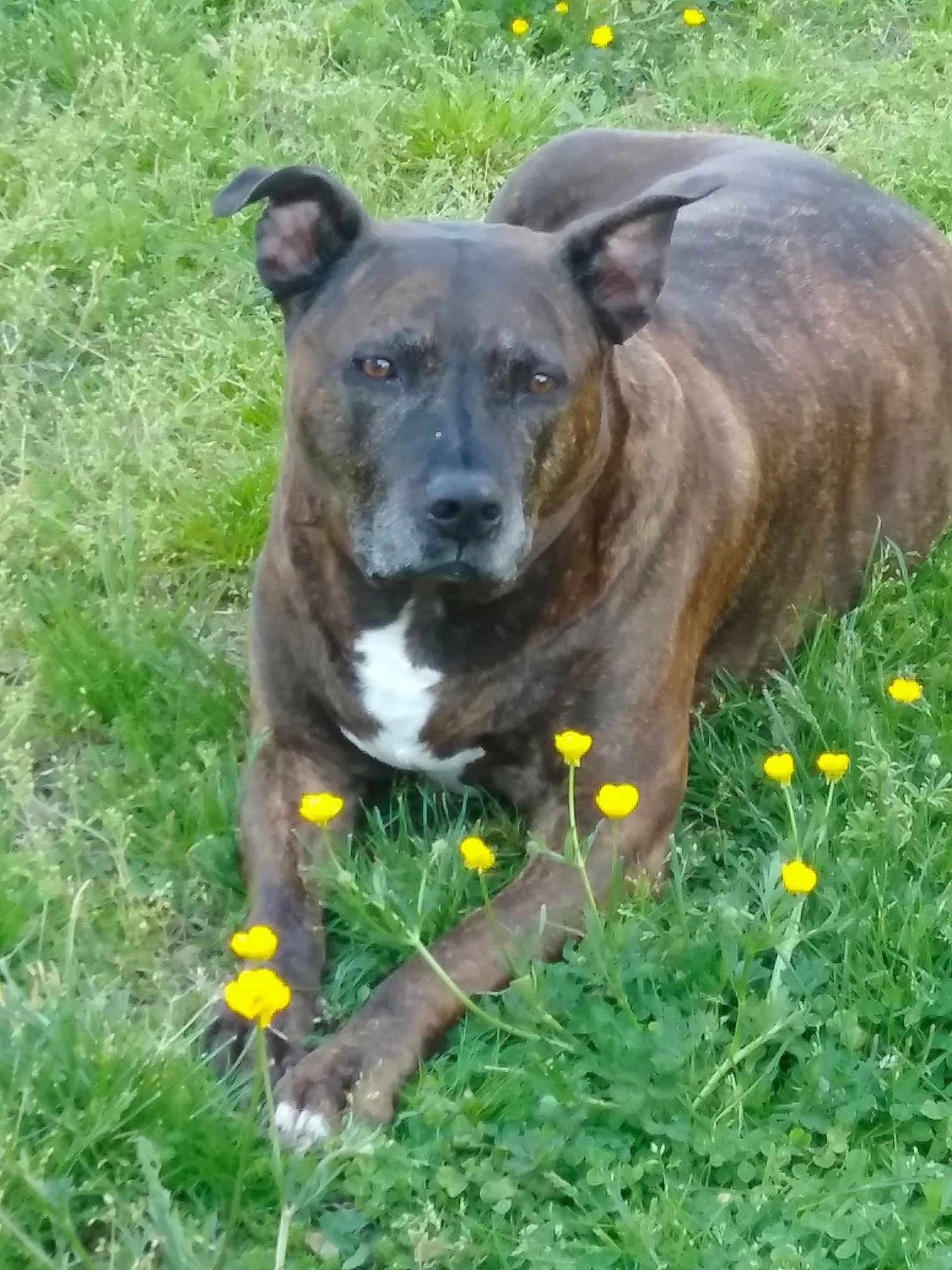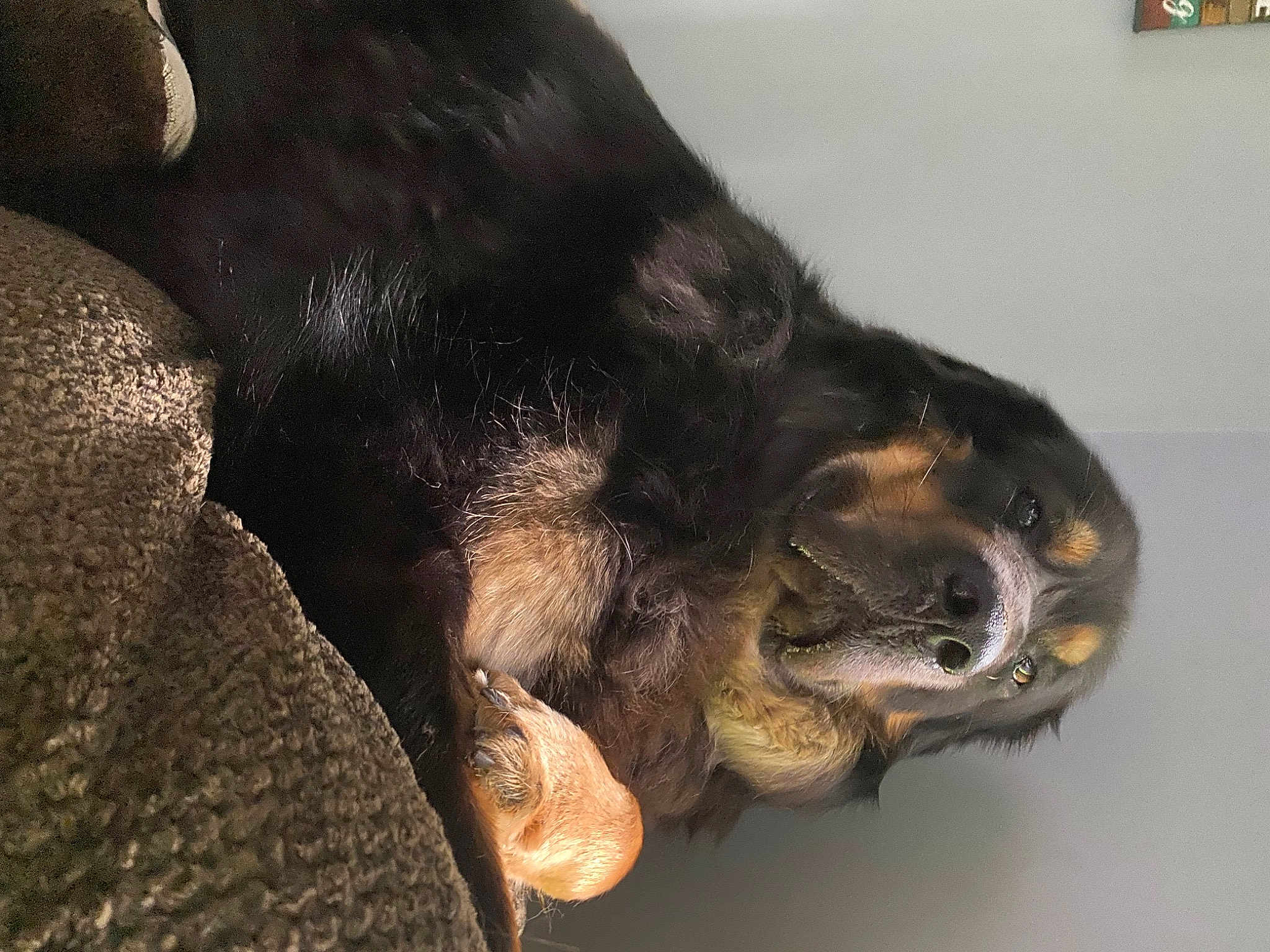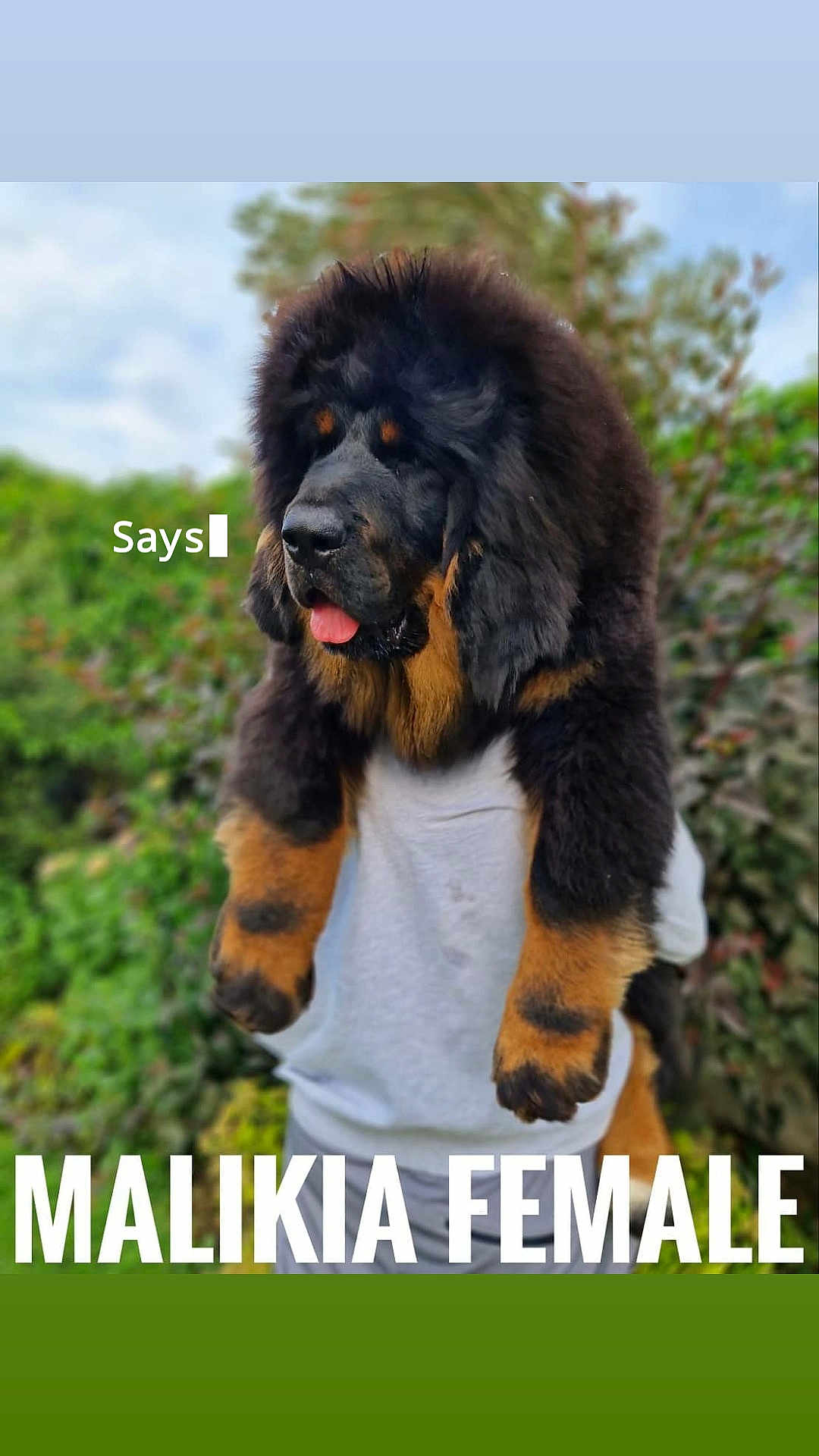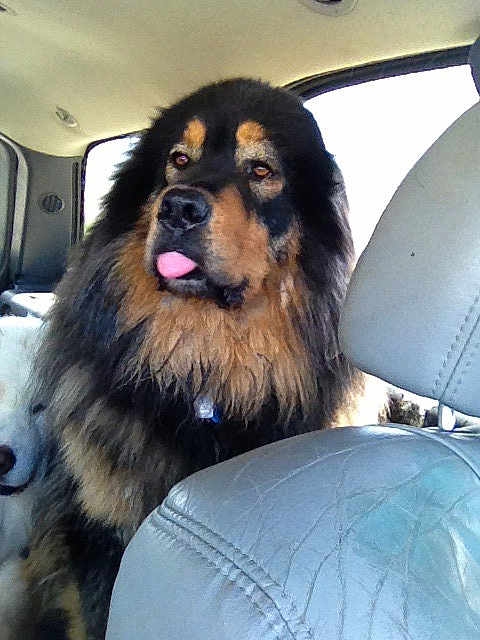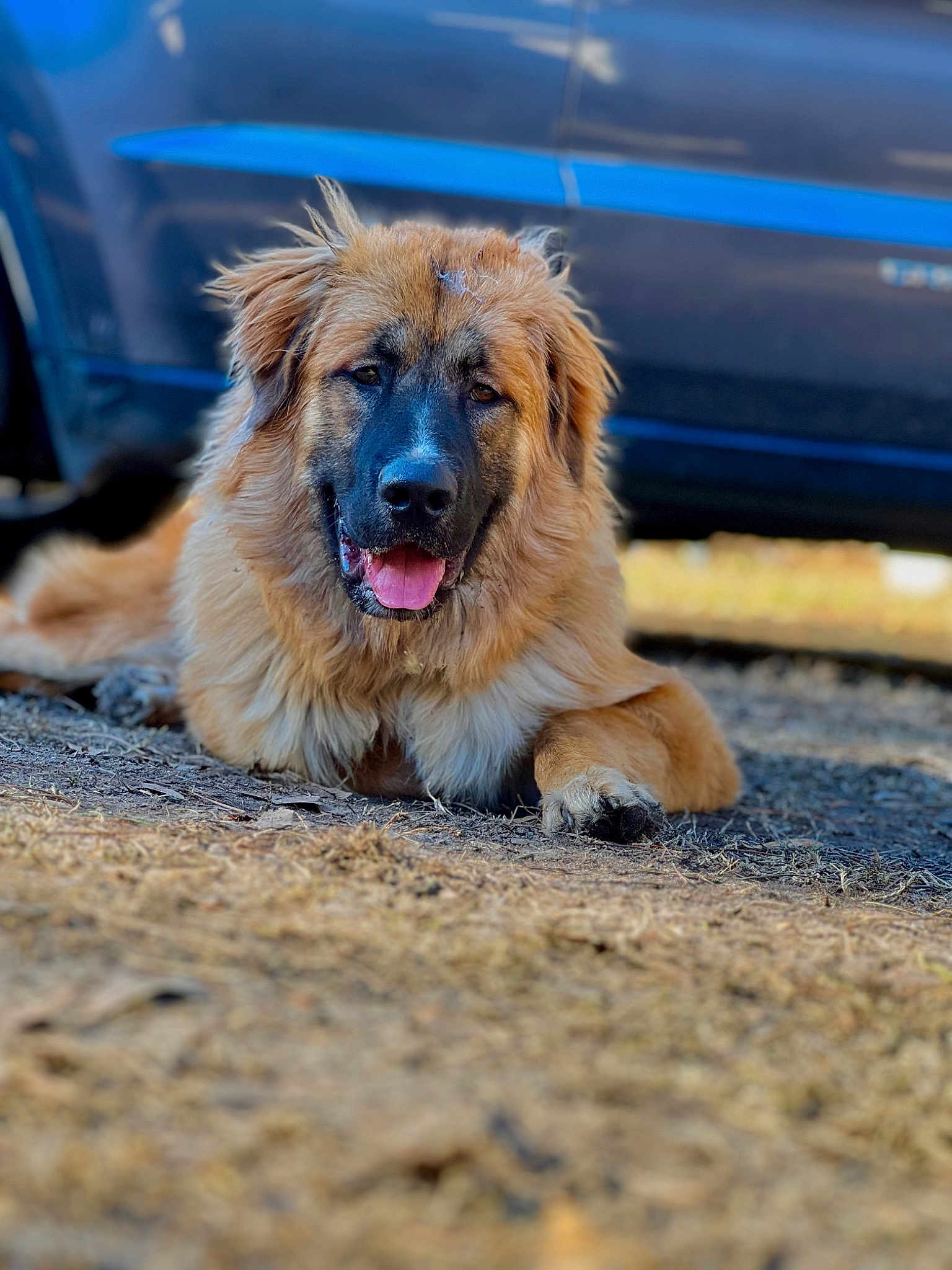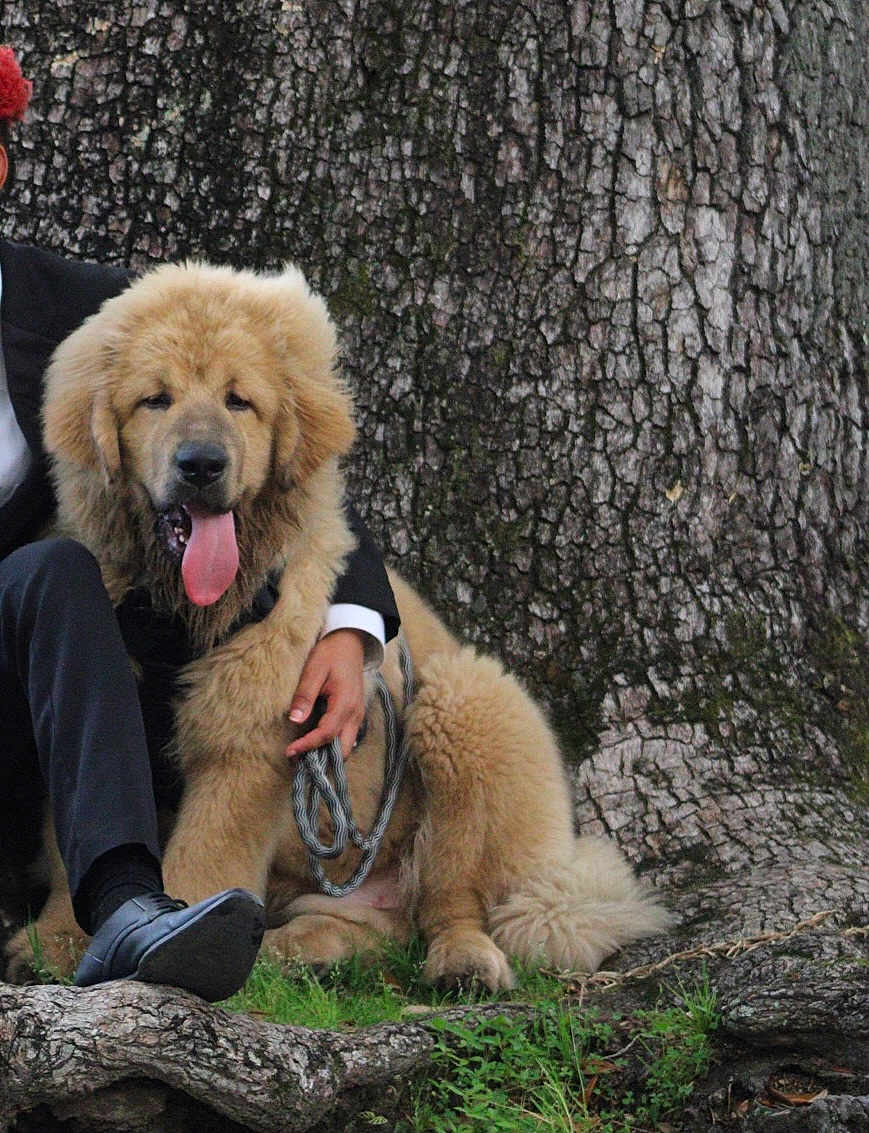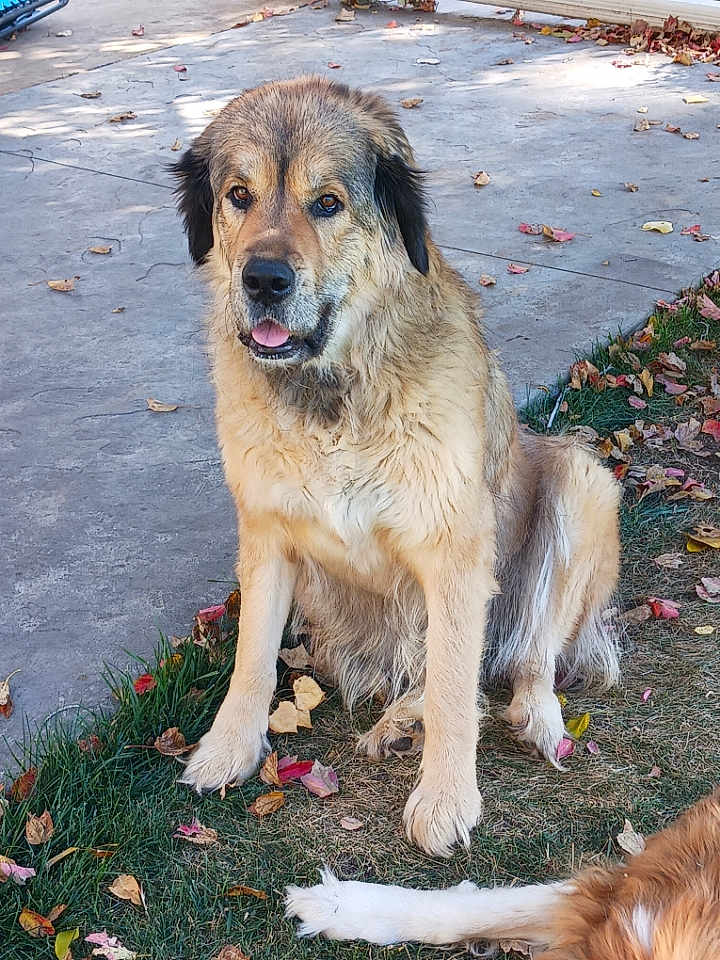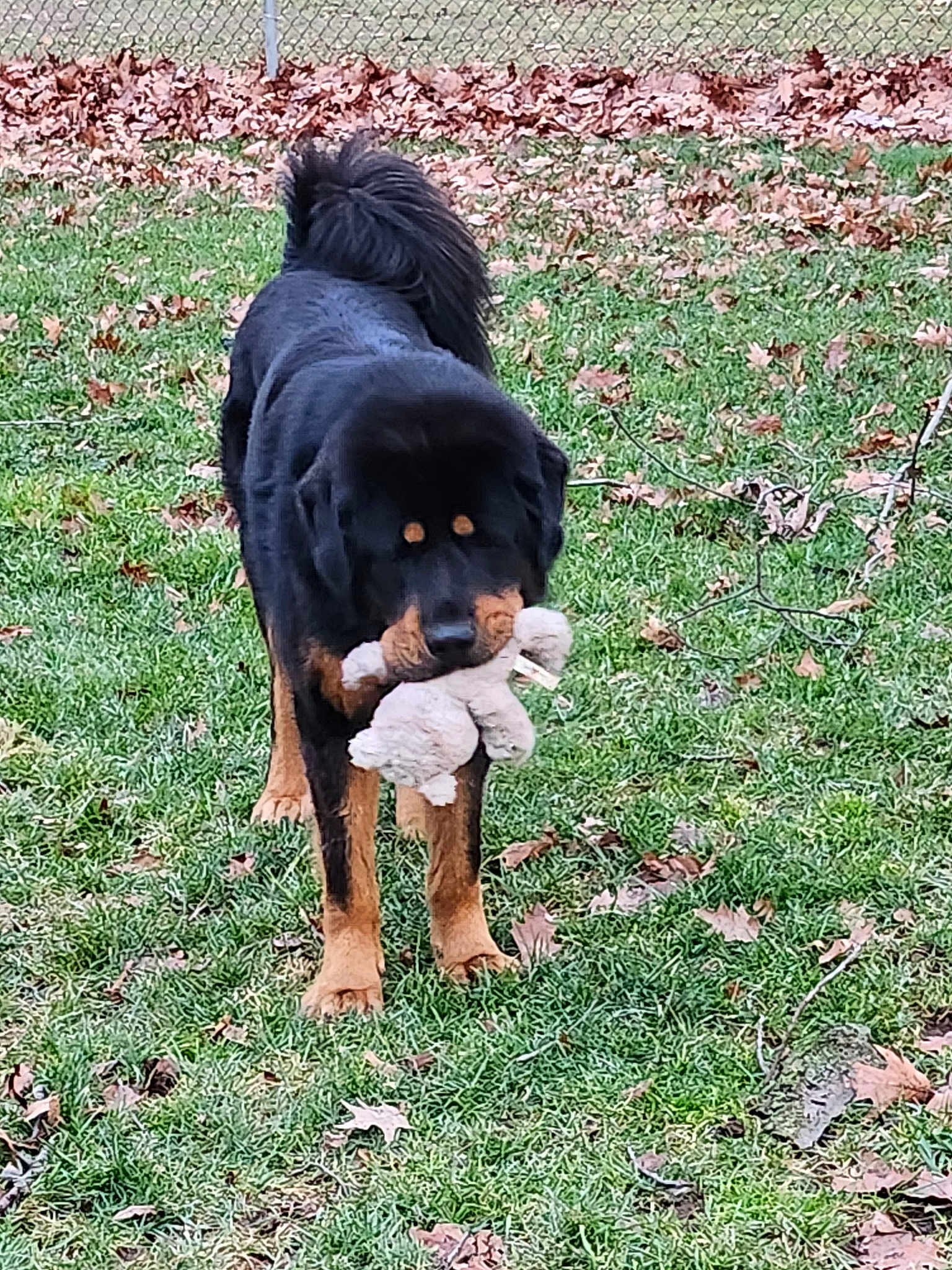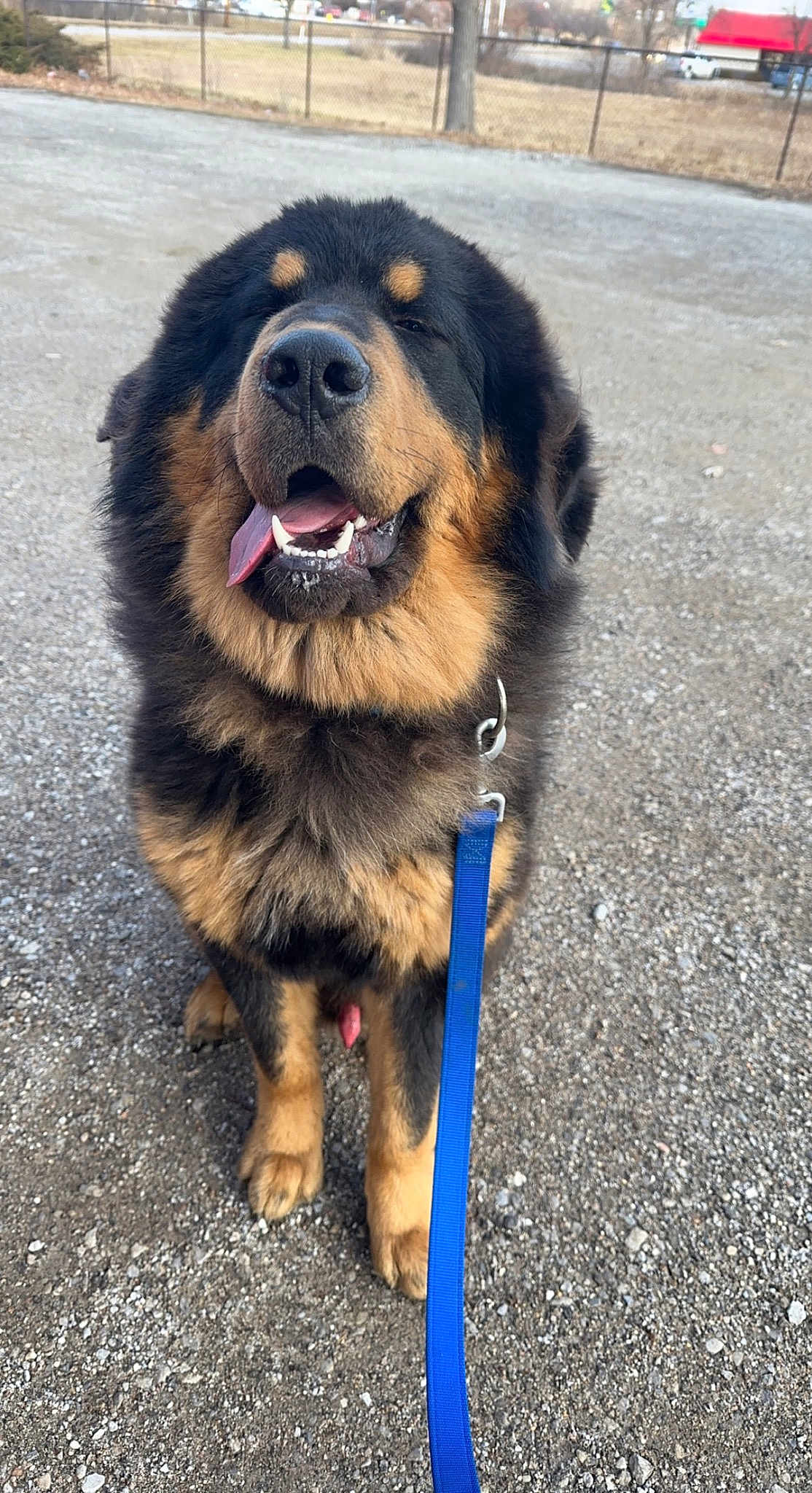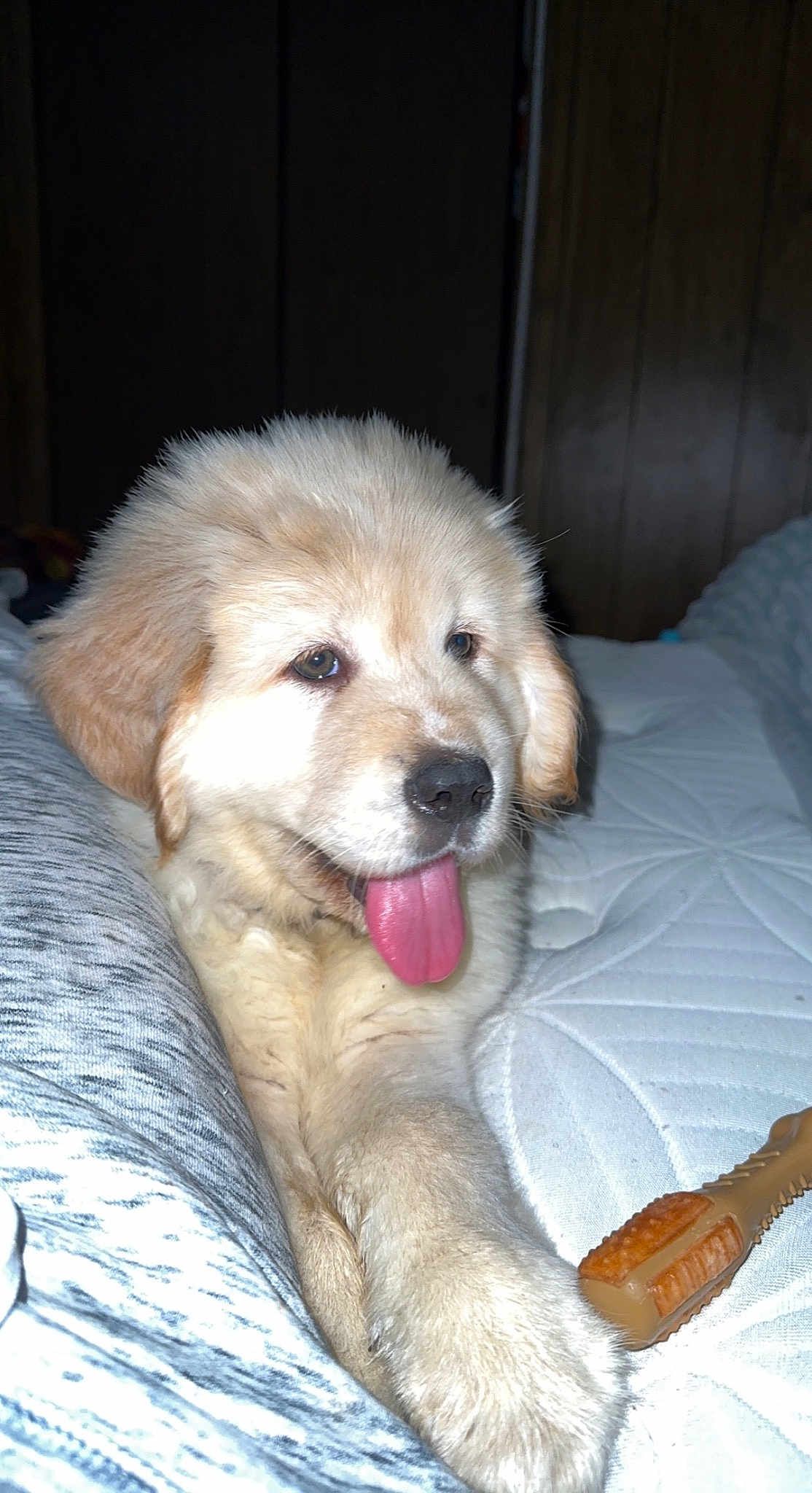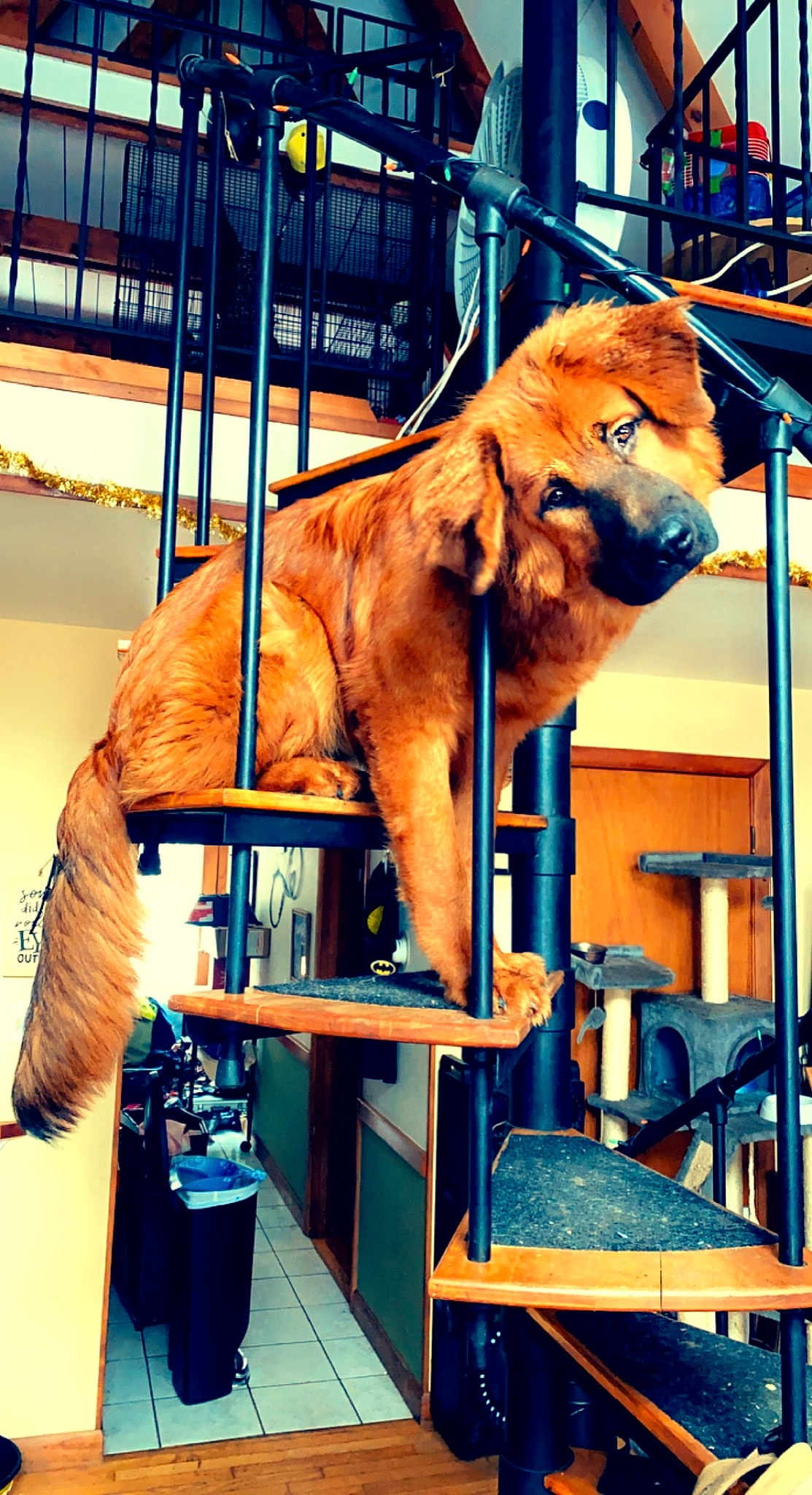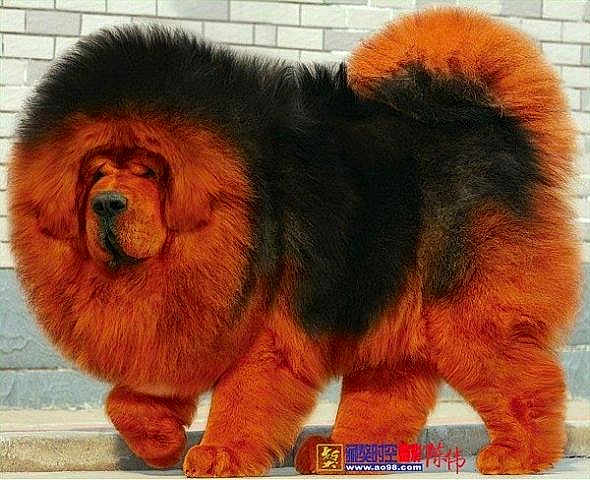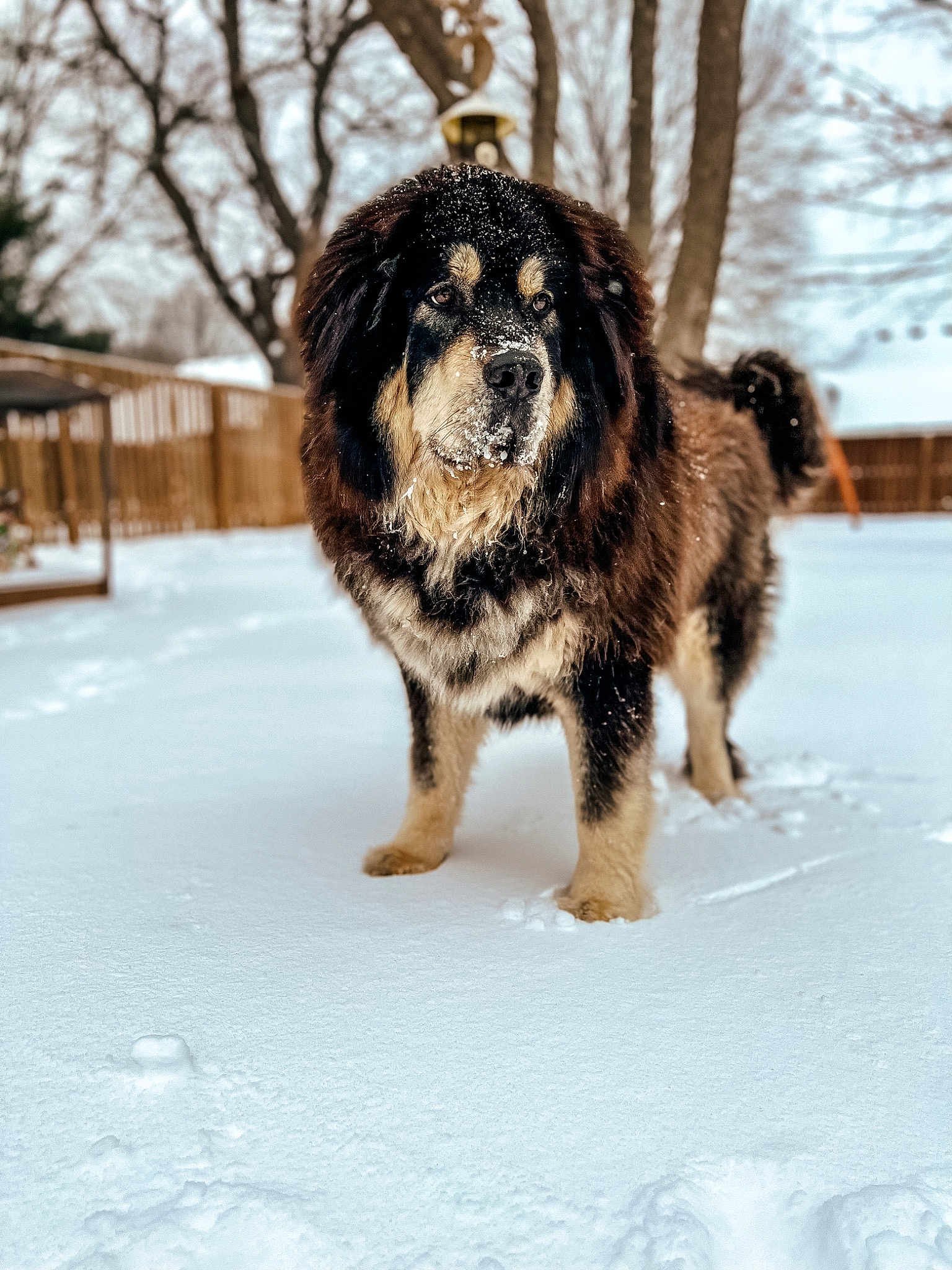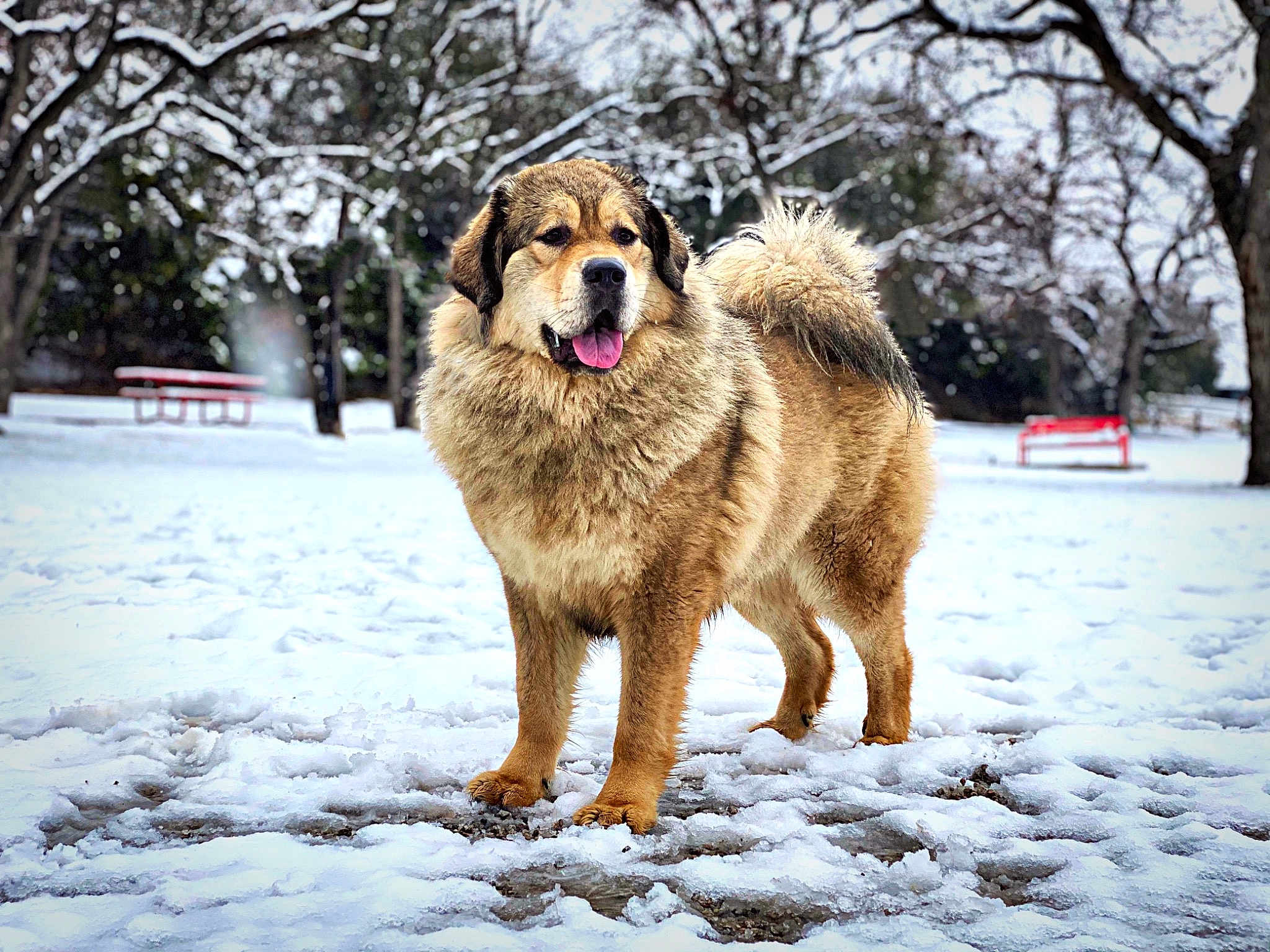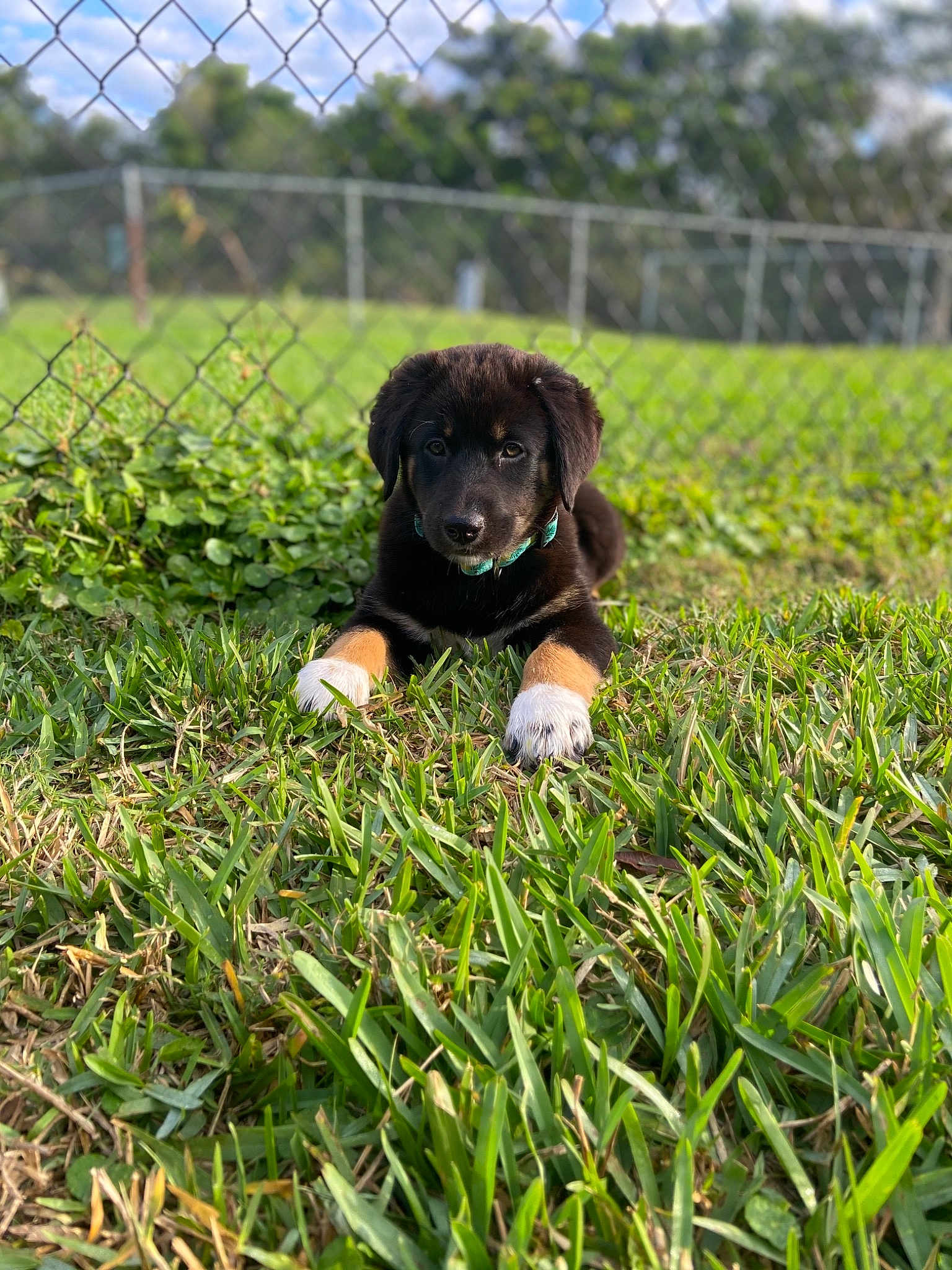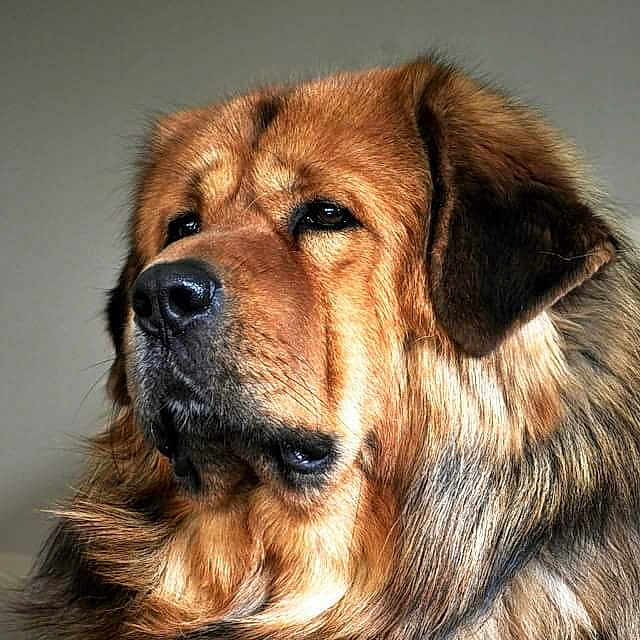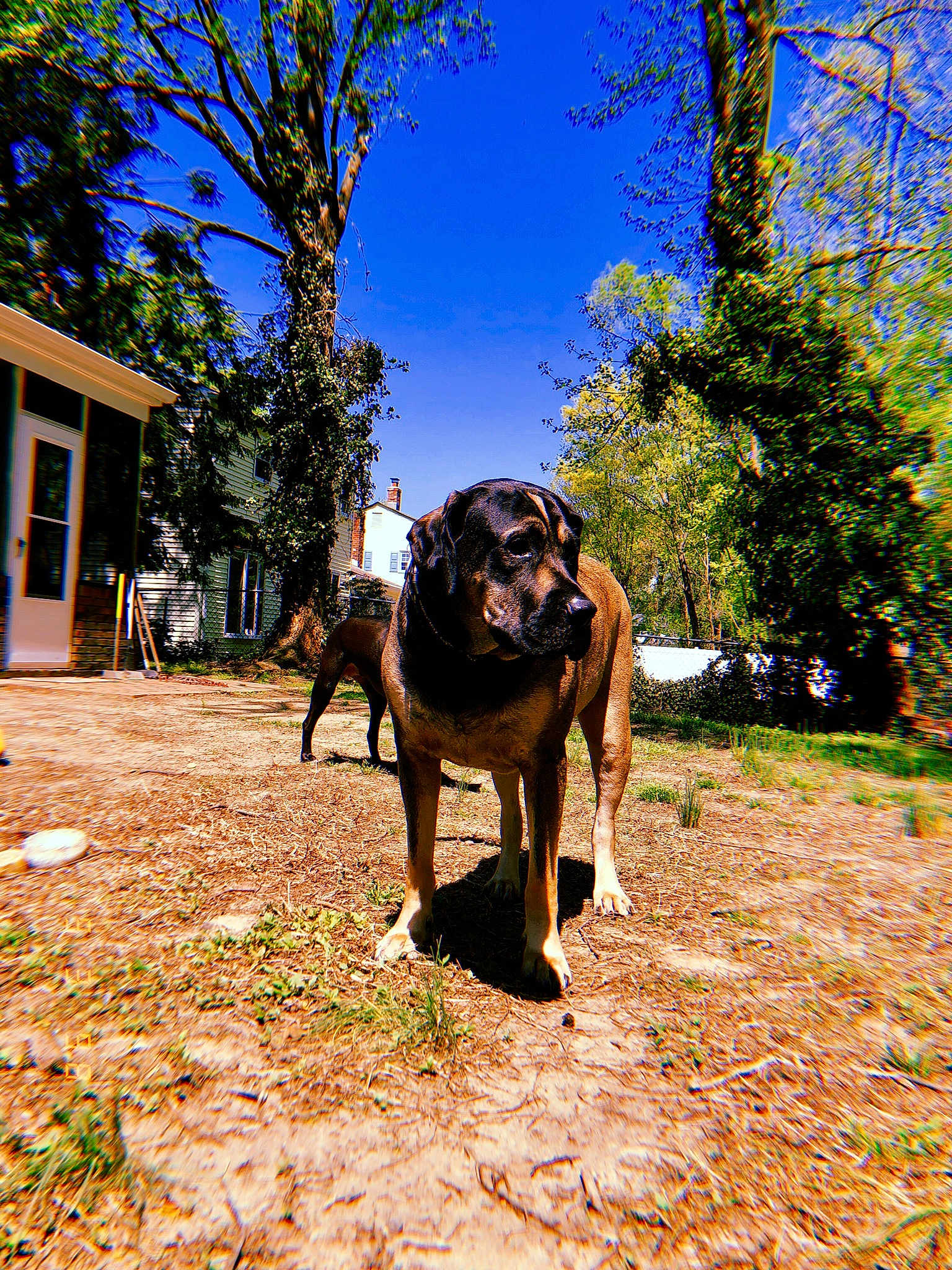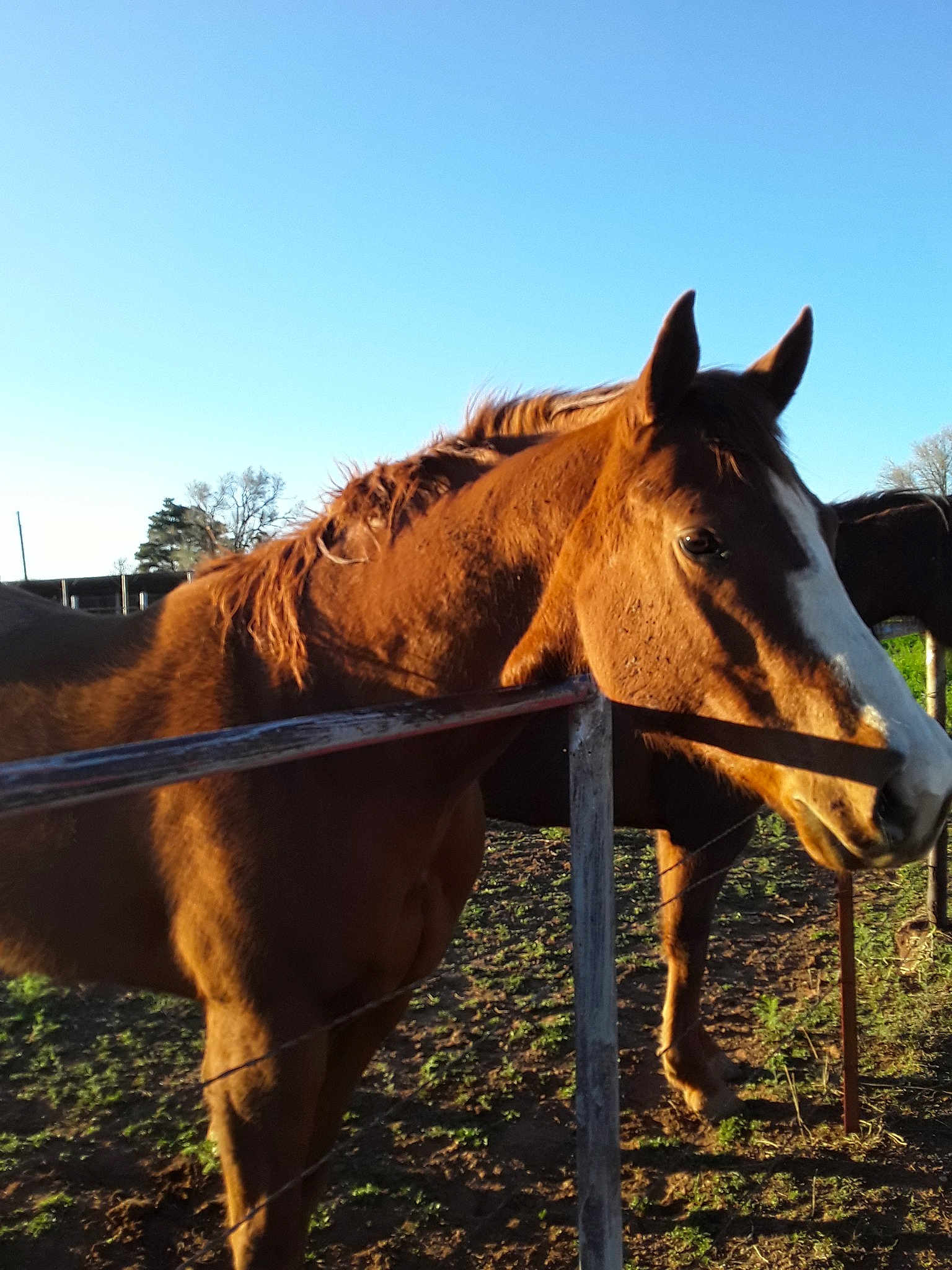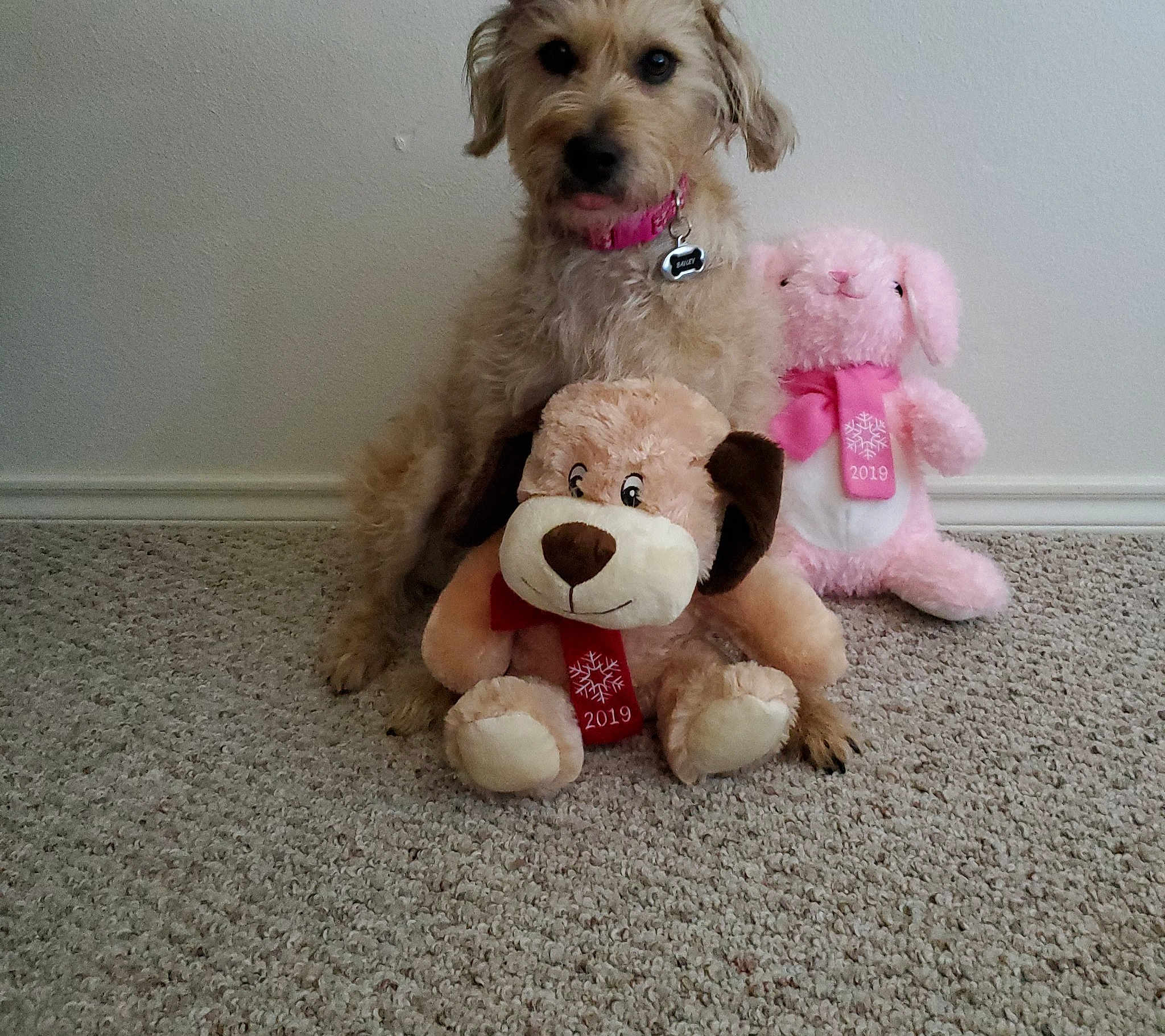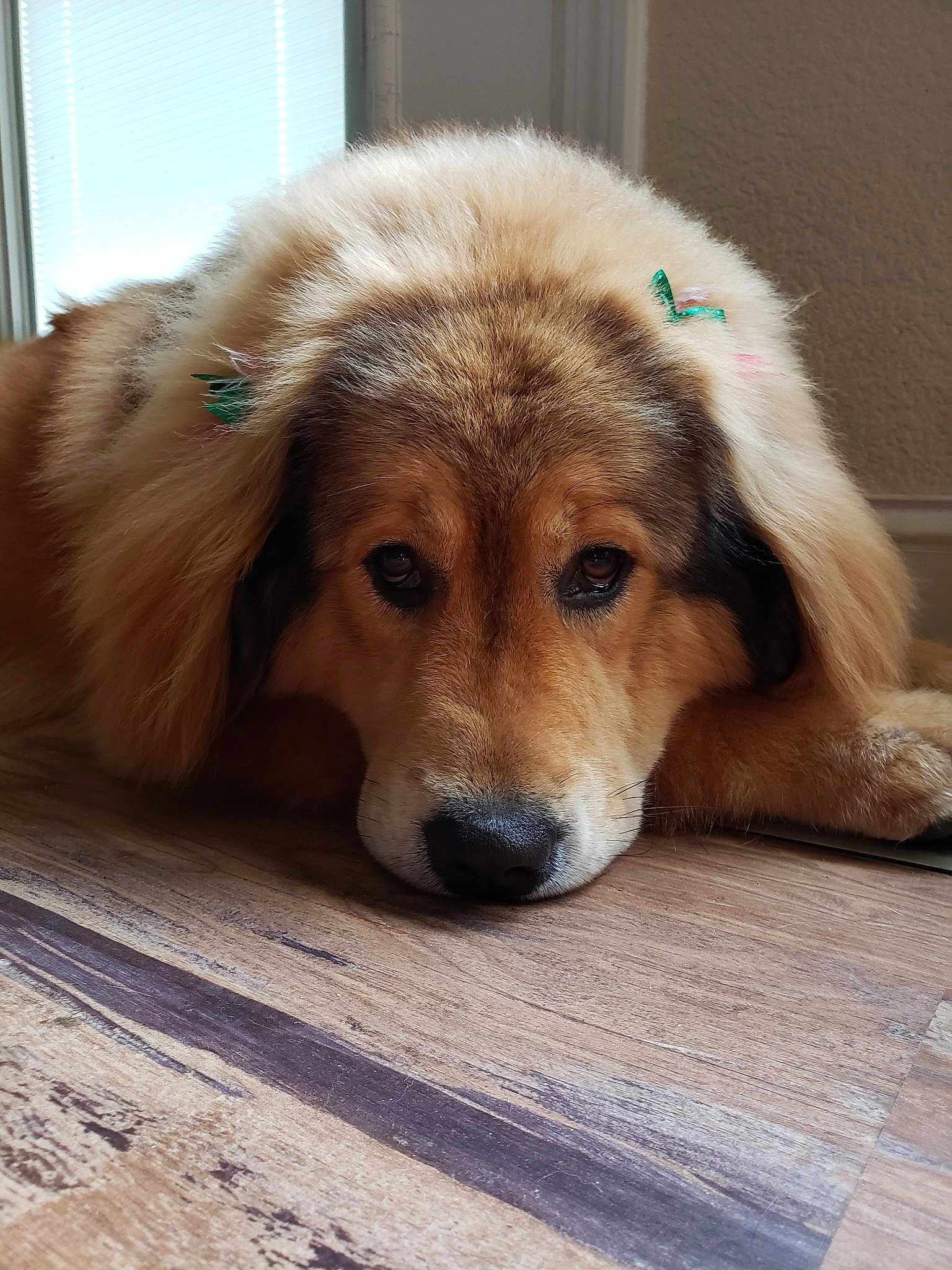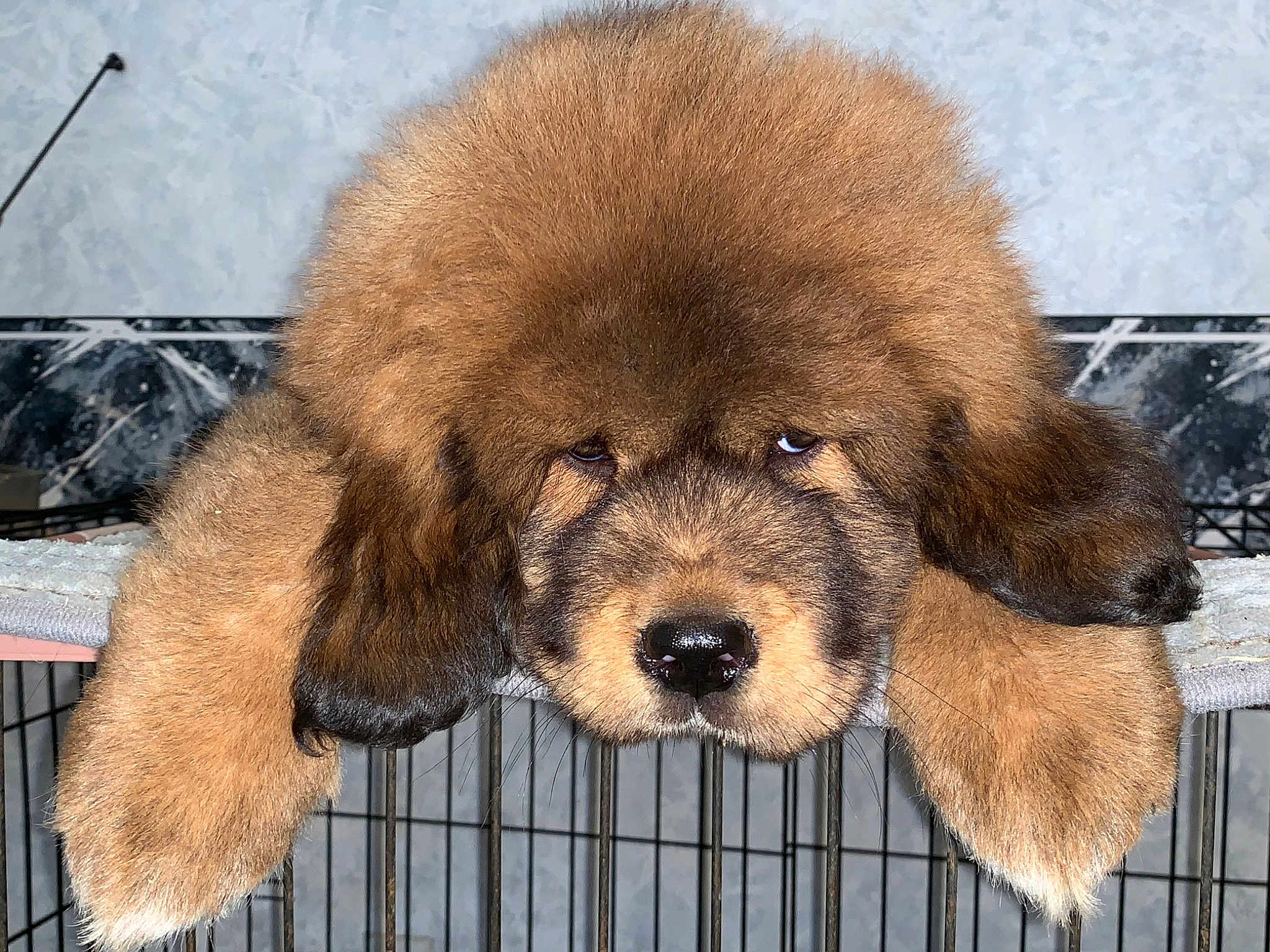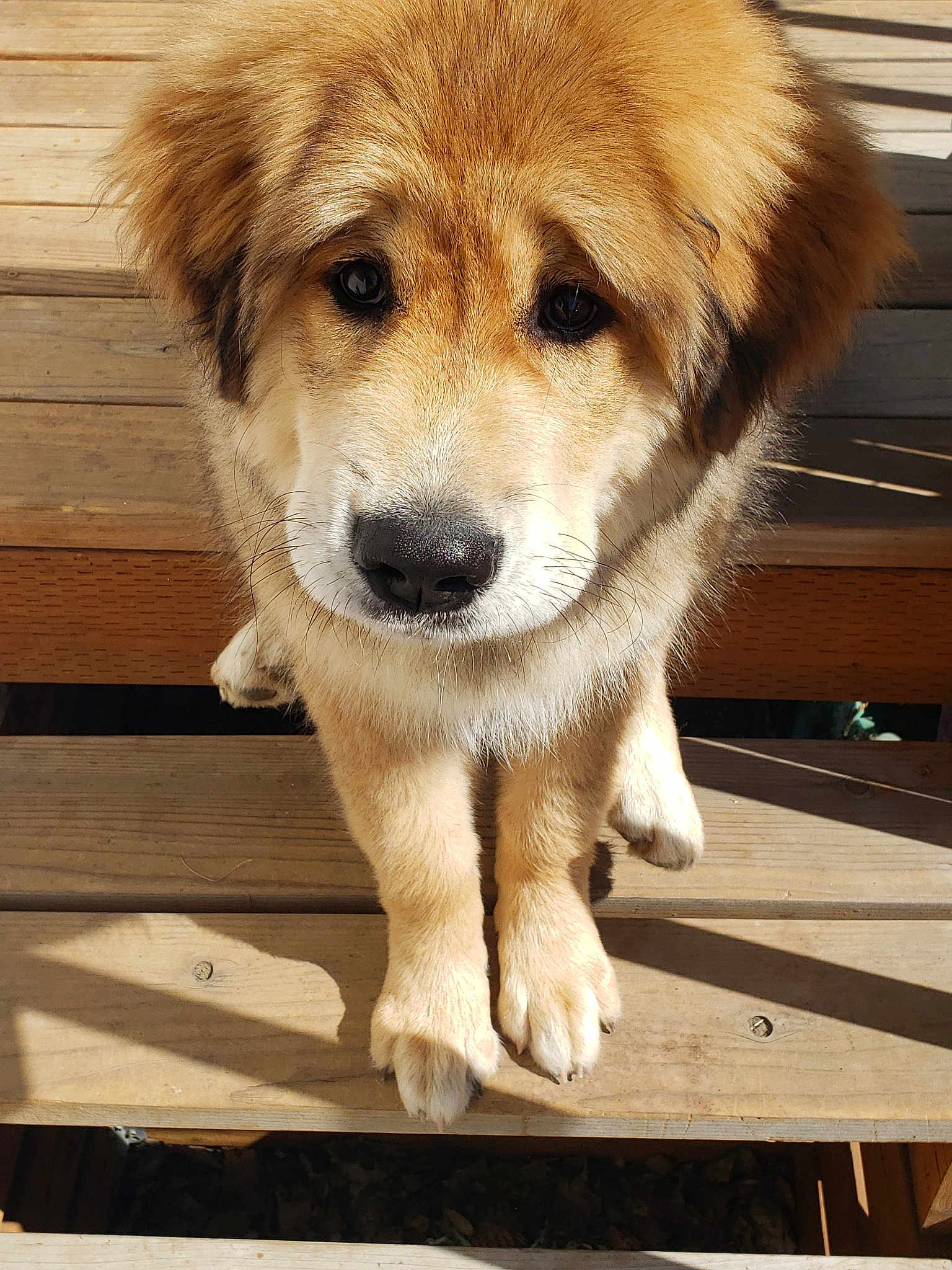
"The Tibetan Mastiff is as close to an ancient dog breed as we can possibly get, a guardian that has served human communities for thousands of years."
The Tibetan Mastiff, known for its majestic and imposing presence, is a breed shrouded in rich history and cultural significance. Originating from the Himalayan region, these dogs have been guardians of livestock, villages, and monasteries for centuries. Their mysterious past, coupled with their dignified bearing, gives Tibetan Mastiffs an almost mythical reputation in the canine world.
Personality and Behavior of the Tibetan Mastiff
The Tibetan Mastiff is a breed known for its loyalty and independence. These dogs are deeply protective of their families and territories, often requiring significant socialization to mitigate their natural wariness of strangers. Owners frequently note the breed's calm and patient demeanor, especially when compared to more energetic breeds. However, don't be surprised if your Tibetan Mastiff suddenly bursts into an energetic sprint – they're known to have unpredictable spurts of playfulness.
One of the defining traits of the Tibetan Mastiff is its independence. Unlike breeds bred for companionship or service, Tibetan Mastiffs have an innate sense of autonomy. This trait can sometimes be mistaken for stubbornness, but it's a natural expression of their historical role as lone guardians against predators.
(Interestingly, the Tibetan Mastiff has a reputation for being as protective as it is independent. In Tibetan folklore, these dogs are said to have deterred not only wolves and snow leopards but also malevolent spirits.)
Tibetan Mastiffs are often described as 'cat-like' in their behavior. They enjoy lounging quietly and observing their surroundings from a high perch but can display startling bursts of energy. This duality makes them both intriguing and challenging pets. They may not seek constant attention but will demand respect and a certain distance until they are ready to engage.
Despite their imposing size and guardian instincts, Tibetan Mastiffs are remarkably gentle with their families. They tend to form strong bonds with their owners and can be incredibly affectionate once trust is established. Children need to be taught how to respect the dog's space, but with proper interaction, the breed can be a steadfast family companion.
Meanings, History and Origins of the name Tibetan Mastiff
The name "Tibetan Mastiff" is somewhat misleading; the breed is not a true Mastiff in the traditional sense of the word. The term 'Mastiff' generally denotes a specific group of large, muscular dogs, but the Tibetan Mastiff has a unique lineage that sets it apart. In its native regions, the breed is known as "Do-Khyi," which translates to "tied dog," reflecting their traditional role of being tethered to guard livestock and property.
Historical records and DNA studies suggest that the Tibetan Mastiff's ancestors can be traced back thousands of years to the nomadic cultures of Tibet, China, Nepal, and India. These dogs were indispensable to their human companions, serving as protectors and, occasionally, as hunters. Their ability to withstand harsh climates and high altitudes further cements their legendary status among the ancient breeds.
Experts believe that the Tibetan Mastiff played a crucial role in the development of other large dog breeds across Asia and Europe. The breed’s distinct traits were often passed down to the dogs bred in the regions they traveled to, particularly along the Silk Road. Thus, the Tibetan Mastiff is considered a cornerstone of several major canine lineages.
The breed holds a sacred place in Tibetan culture and is often mentioned in conjunction with the spiritual and cultural beliefs of the region. Tibetan Mastiffs are believed to possess spiritual qualities, often depicted as protectors of their human families against both physical and spiritual harm. Their role as guardians even extends to Tibetan folklore and religious texts, where they are often revered as divine protectors.
Popularity of the Tibetan Mastiff
The Tibetan Mastiff has experienced fluctuating levels of popularity over the years. Traditionally cherished in their native regions, these dogs were almost unknown outside their range until the 19th century when travelers and explorers started documenting them. Their introduction to the Western world ignited curiosity but their rarity and the challenges of importing them kept their numbers low.
In recent years, the Tibetan Mastiff has seen a surge in popularity, particularly in China. These dogs have become a status symbol and are often sold for exorbitant prices. The breed's majestic appearance and storied past make them appealing to affluent individuals looking for a unique and prestigious pet. This phenomenon has led to the Tibetan Mastiff being one of the most expensive dog breeds globally.
(In an astonishing record, an 11-month-old Tibetan Mastiff was sold for nearly $2 million in China, setting a world record for the most expensive dog ever sold.)
In English-speaking countries, the Tibetan Mastiff remains relatively rare but cherished by those who appreciate its unique qualities. Breeders and enthusiasts often emphasize the breed's need for an experienced handler and ample space, which has kept it from becoming mainstream. However, the dog's allure continues to grow as more people become aware of its remarkable attributes.
Globally, the breed's standing varies. In European countries like Germany and the UK, the Tibetan Mastiff is gaining a foothold among dog fanciers. Similarly, in the United States, the breed is becoming increasingly popular in specific circles, especially among those who value its guardian instincts and historical significance.
Health and Care of the Tibetan Mastiff
The Tibetan Mastiff is generally a healthy breed, but they are prone to some genetic and hereditary conditions. Common health issues include hip dysplasia, elbow dysplasia, and autoimmune thyroiditis. Responsible breeders often screen for these conditions to ensure the long-term health of the breed.
Regular veterinary check-ups are essential for maintaining the health of a Tibetan Mastiff. Due to their size and thick coat, they can be susceptible to overheating, so ensuring they have a cool, comfortable environment is critical. Owners should also monitor their dog's weight to prevent obesity, which can exacerbate joint issues.
Dietary needs for the Tibetan Mastiff are comparable to other large breeds but need specific attention due to their unique metabolism. High-quality commercial dog food tailored for large breeds, or a carefully monitored home-prepared diet, can meet their nutritional needs. Always consult with a veterinarian to create a balanced diet plan.
Grooming is another important aspect of Tibetan Mastiff care. Their thick, double coat requires regular brushing to prevent matting and to manage shedding. During shedding season, which typically happens once or twice a year, more frequent brushing is necessary. Bathing should be done as needed, ensuring their dense coat is thoroughly dried to prevent skin issues.
Training and Education of the Tibetan Mastiff
Training a Tibetan Mastiff presents unique challenges due to their independent nature and strong will. Early socialization and obedience training are crucial to ensure they grow into well-adjusted adults. Introducing them to a variety of people, environments, and other animals at a young age can help mitigate their natural wariness of strangers.
Positive reinforcement methods work best with this breed. Harsh training techniques can lead to mistrust and resistance, whereas rewarding good behavior encourages cooperation. Consistency and patience are key; Tibetan Mastiffs are intelligent but can be slow to follow commands if they do not see the immediate benefit.
One of the most common challenges is housebreaking. Tibetan Mastiffs can be stubborn when it comes to learning where to relieve themselves, requiring a consistent routine and plenty of positive reinforcement. Crate training can be helpful in this aspect, providing a safe and defined space for the dog.
Exercise needs for Tibetan Mastiffs are moderate compared to other large breeds. While they enjoy a roam in a secure yard and regular walks, they do not require strenuous physical activity. Mental stimulation, however, is crucial. Providing toys that challenge their intellect and engaging them in activities that stimulate their problem-solving skills can prevent boredom and associated behavioral issues.
Training should be ongoing. Tibetan Mastiffs have a strong guarding instinct that may need constant management. Refreshing their socialization and obedience skills throughout their lives can help maintain a balanced temperament, ensuring they remain gentle giants.
Selecting the right dog breed requires careful consideration of various factors, including lifestyle, living conditions, and experience with dogs. The Tibetan Mastiff, with its protective nature and majestic presence, can be an incredible companion for the right owner. They thrive in environments where they can exercise their guarding instincts while being provided with firm and loving guidance.
In conclusion, the Tibetan Mastiff is a breed that has captivated human imagination for centuries with its blend of strength, dignity, and loyalty. At Pageant Dog, we see many Tibetan Mastiffs participating in our contests, showcasing their unique beauty and character. If you're looking for a breed that offers a rich historical lineage, unwavering loyalty, and a touch of the mystical, the Tibetan Mastiff could be the perfect addition to your family.




